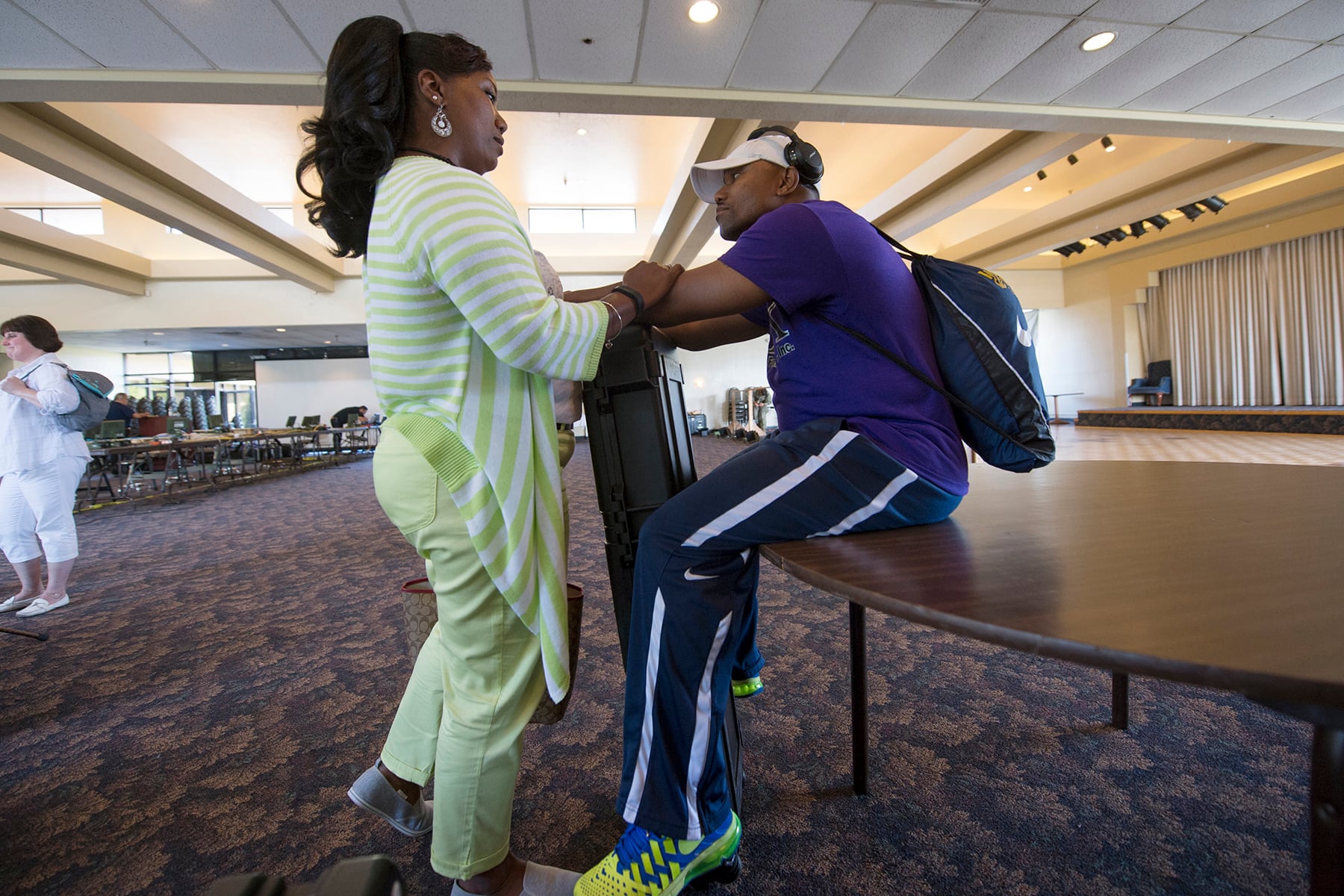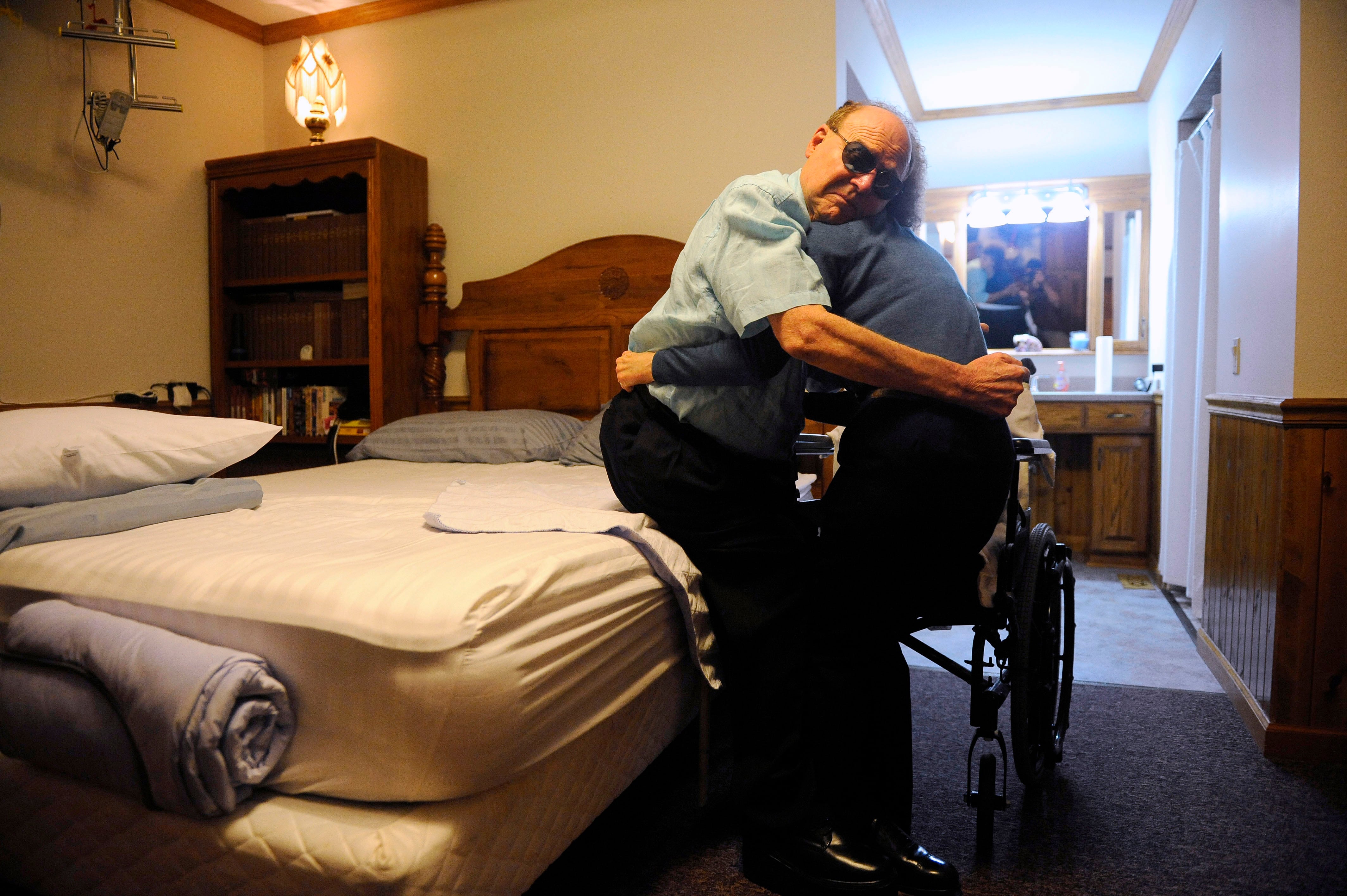As Veterans Affairs officials prepare for a massive expansion of caregiver stipends later this year, lawmakers are expressing concern that the department still can’t administer the current program properly, leaving many participating families confused and frustrated.
A new analysis from the office of Sen. Patty Murray, D-Wash., found that more than 30 percent of individuals enrolled in VA’s Program of Comprehensive Assistance for Family Caregivers have dropped out of the system over the last two years, a figure she calls “disturbing.”
The program provides several thousands of dollars a months to some families caring for veterans who served after 9/11.
In the last eight years, VA officials have approved more than 40,000 caregiver applications, but only 19,295 were actively participating in the program at the start of April this year. In eight states — Hawaii, Delaware, Kentucky, Maryland, Nevada, Oregon, Tennessee, and Vermont — enrollment has dropped by more than half since the start of 2017.
In a statement, VA officials disputed those figures, saying the data “includes many intervals of care, including approvals and/or removals and multiple caregiver assignments over time for the same veteran, so it’s not the best measure of program participation.”
RELATED

They noted that of the 8,000-plus individuals who have been removed from the program since 2017, nearly one-third have been voluntary withdrawals. The total of disenrolled veterans also includes individuals who have been institutionalized or passed away.
Last year, VA Secretary Robert Wilkie ordered a moratorium on clinical eligibility discharges and reductions in benefits levels for participants in the caregiver program after reports of numerous families being improperly booted from the program. VA spokesman Curt Cashour said that order remains in effect today.
Murray praised that move but remains unconvinced that it solved all the problems with veterans falling out of the program, asserting that the new figures raise “many serious questions about how the VA is working to ensure the caregivers program is ready to serve even more of our veterans by the upcoming deadline” this fall.
One segment of the veteran population that hasn’t been served under this program are older veterans, a point of tension since it became law in 2010.
Last year, as part of the VA Mission Act, lawmakers included a phased entry into the program for those older generations. Starting this fall, veterans who sustained a serious military-related injury before May 7, 1975, will be eligible for the payouts. All remaining veterans are scheduled to become eligible in fall 2021.
The staggered expansion is designed to minimize disruption on the system. Officials estimate expansion could grant monthly stipends to more than 41,000 new veteran families in coming years, more than double the current number of stipend recipients.
But last week, during a House Veterans’ Affairs Committee hearing on the topic, lawmakers from both parties questioned whether VA’s information technology systems would be ready for the fall deadline, and whether the department has learned from past problems with the caregiver program.
“In 2014, the (Government Accountability Office) released a report highlighting the degree of ineptitude of the IT system supporting the caregiver program and recommended VA pursue a replacement system,” said Rep. Julia Brownley, D-Calif., and chairwoman of the committee’s health panel. “Five years later, nothing has changed.”
RELATED

Several other panel members questioned whether the expansion could overwhelm and collapse the current system. VA officials promised they are working on solutions.
Veterans Health Administration Acting Principal Deputy Under Secretary for Health Steven Lieberman told the committee he is confident the department will meet the fall deadline for expansion but “we will not expand the program until we are certain that our obligations for eligible veterans and caregivers are met.”
Murray, who has been a vocal advocate of the program in recent years, promised close oversight to ensure more families benefits aren’t disrupted. Full certification of the new information technology program and the expansion to the next group of caregivers is scheduled for Oct. 1.
Leo covers Congress, Veterans Affairs and the White House for Military Times. He has covered Washington, D.C. since 2004, focusing on military personnel and veterans policies. His work has earned numerous honors, including a 2009 Polk award, a 2010 National Headliner Award, the IAVA Leadership in Journalism award and the VFW News Media award.





